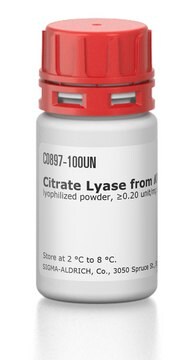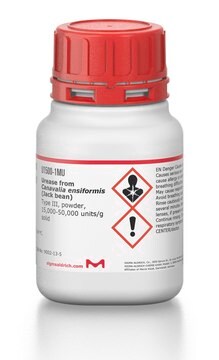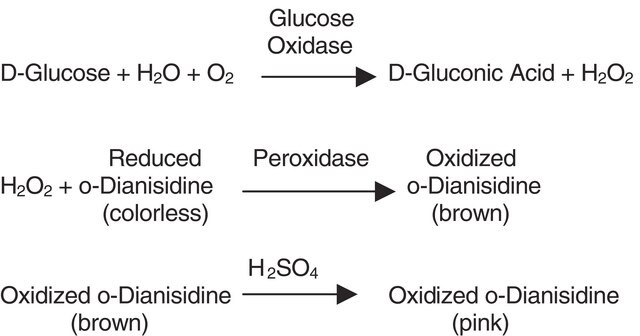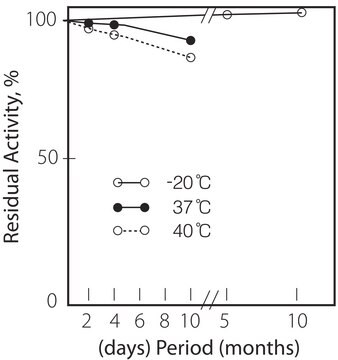10354074001
Roche
Citrate Lyase (CL)
from Klebsiella pneumoniae (Aerobacter aerogenes)
Synonym(s):
Citrate Lyase (CL)
About This Item
Recommended Products
biological source
bacterial (Klebsiella pneumoniae)
Quality Level
form
lyophilized
specific activity
≥0.25 U/mg (At 25 °C with citrate as the substrate.)
packaging
pkg of 120 U
manufacturer/tradename
Roche
technique(s)
activity assay: suitable
color
light cream
optimum pH
8.0-9.0
solubility
water: soluble
NCBI accession no.
UniProt accession no.
application(s)
life science and biopharma
foreign activity
ICDH <0.05% (NAD as coenzyme)
NADH oxidase <0.05%
storage temp.
2-8°C
General description
Application
Quality
Physical form
Preparation Note
Other Notes
wgk_germany
WGK 1
flash_point_f
does not flash
flash_point_c
does not flash
Certificates of Analysis (COA)
Search for Certificates of Analysis (COA) by entering the products Lot/Batch Number. Lot and Batch Numbers can be found on a product’s label following the words ‘Lot’ or ‘Batch’.
Already Own This Product?
Find documentation for the products that you have recently purchased in the Document Library.
Customers Also Viewed
Our team of scientists has experience in all areas of research including Life Science, Material Science, Chemical Synthesis, Chromatography, Analytical and many others.
Contact Technical Service







